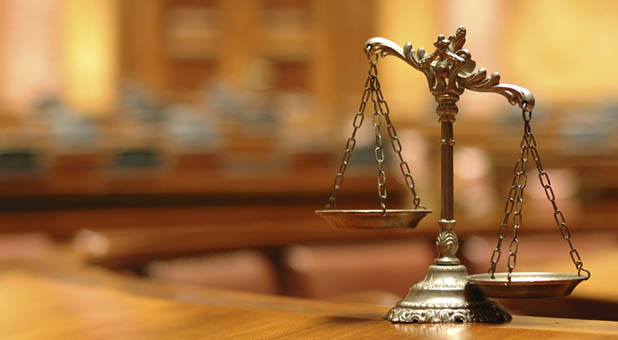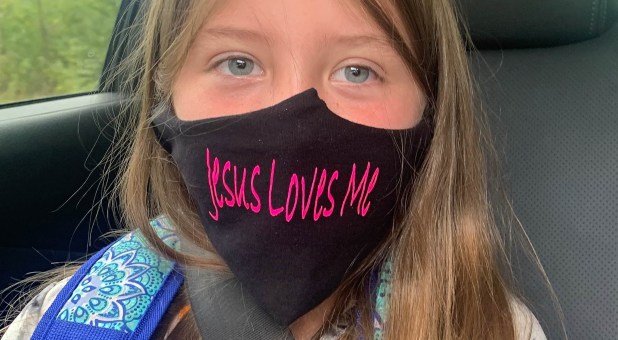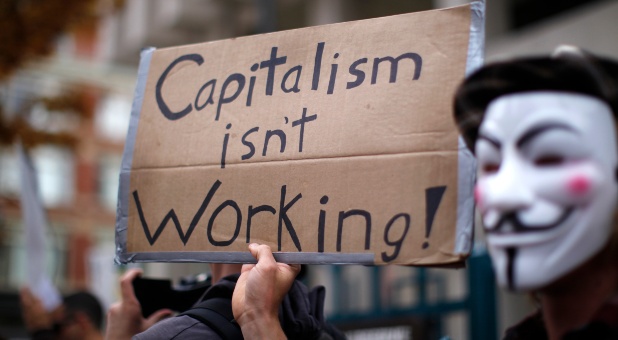According to a new opinion released by Texas Attorney General Ken Paxton, courtroom prayer is not only constitutional, it’s historical.
The question arose from a complaint about Montgomery County Justice of the Peace Wayne Mack and his use of volunteer chaplains. These volunteers from a number of different faiths serve two purposes: They provide comfort to those who request it at the scene of a death, and they also offer prayers at the beginning of Mack’s court proceedings.
The complaint argued both of those violated the so-called “Establishment Clause” of the First Amendment.
As Justice of the Peace, Mack must also serve the role of coroner for Montgomery County. He found it difficult to conduct the necessary death investigations when, as a first responder, he was also being asked to help comfort family members and/or witnesses.
With the volunteer chaplain program in place, those people are now offered an opportunity to speak with a chaplain that matches their own faith. To recognize these volunteers for their service, Mack also invites them to pray before the beginning of his court proceedings.
Even though the practice is protected under legal precedent and mirrors the tradition of both the Texas and United States Supreme Courts, the Freedom From Religion Foundation complained, resulting in the Texas State Commission on Judicial Conduct launching an investigation into Mack’s practices. Last fall, First Liberty Institute represented him at a hearing before the Commission, which soon after dismissed the complaint, but “strongly cautioned” the volunteer chaplain program should be ended.
After substantial public outcry, Texas Lt. Gov. Dan Patrick and Seana Willing, the executive director of the Texas State Commission on Judicial Conduct, asked Paxton for an opinion on opening court proceedings with a voluntary prayer. Patrick also requested an opinion on the constitutionality of the volunteer chaplain program.
Paxton’s six-page opinion goes to great lengths to explain both the constitutional and historic basis for his determination. In summary, however, he found:
A Justice of the Peace does not violate the Establishment Clause by opening a court session with the statement, “God save the State of Texas and this Honorable Court.”
A court would likely conclude that a Justice of the Peace’s practice of opening daily court proceedings with a prayer by a volunteer chaplain as you describe is sufficiently similar to the facts in Galloway such that the practice does not violate the Establishment Clause.
A court would likely conclude that the volunteer chaplain program you describe, which allows religious leaders to provide counseling to individuals in distress upon request, does not violate the Establishment Clause.
While the opinion isn’t binding in any way, it does provide a strong argument in favor of Mack’s actions, and would likely carry considerable weight in any future Texas court proceeding on a similar matter. First Liberty Institute president and CEO Kelly Shackelford, however, declared it a “total victory” for religious freedom.
“This is a total victory for Judge Mack and for the citizens of Texas,” he said. “If the Supreme Courts of the United States and Texas can open with prayer, clearly, the law allows for Judge Mack’s court to open with an invocation by a volunteer chaplain. We are grateful Attorney General Paxton has brought clarity to this important issue, reaffirming the constitutionality of prayer in the public arena.”
Mack also expressed his gratitude to Paxton for taking up the matter. He said dealing with the issue has been a “long and arduous process.”
“I’m thankful for Lt. Gov. Patrick’s request for an opinion on this important issue and that Attorney General Paxton made clear that the Constitution permits judges to invite volunteer chaplains to open sessions of court with prayer,” he said. “This is a clear victory for religious liberty.”





